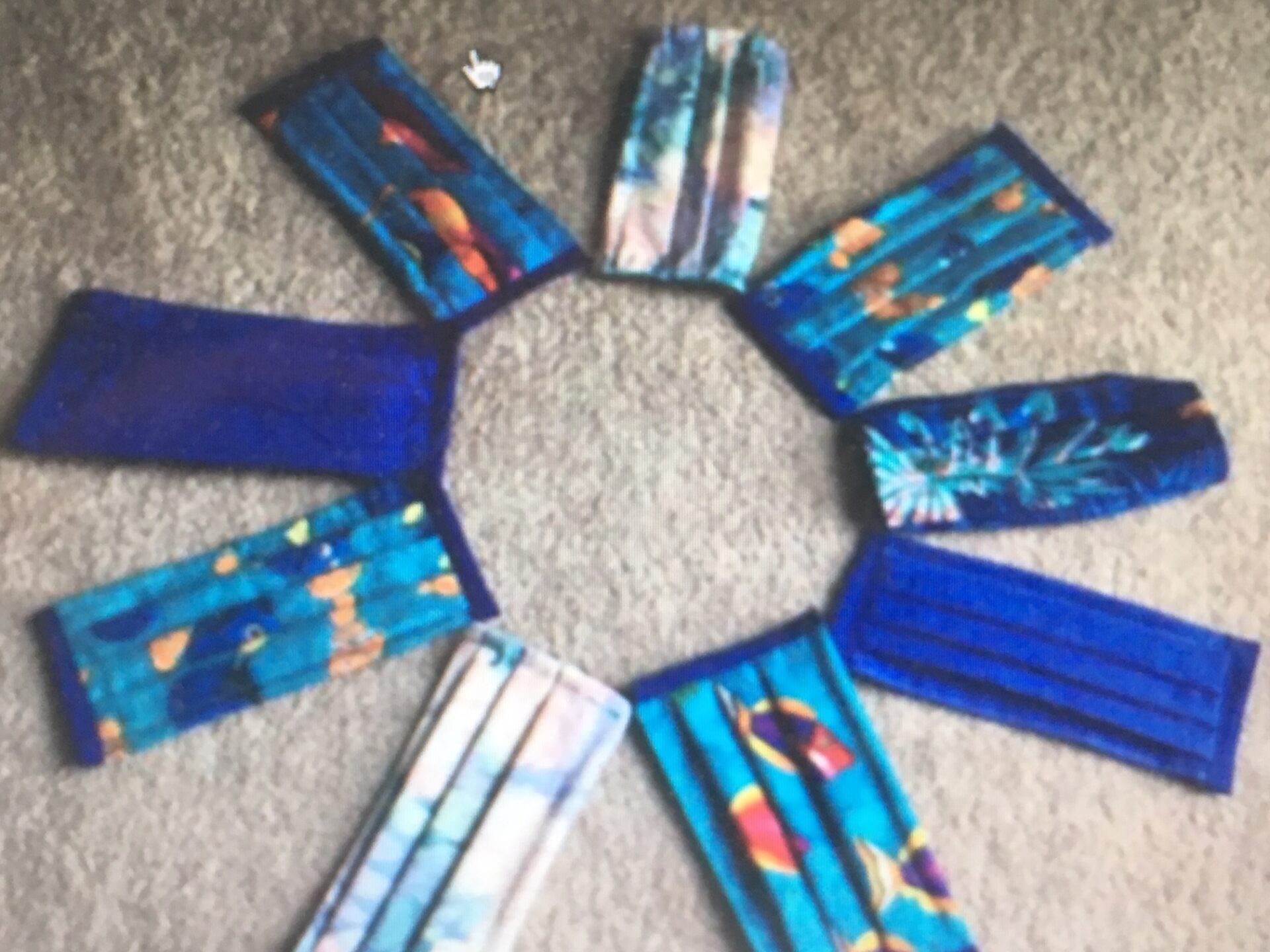THIS IS WHAT you do when your community faces a crisis. You see what needs to be done and then you do it.
Sally Steen and Terry Wessels have taken that to heart. They’ve started an online group, Masks for Marquette, to make masks to help protect our doctors, nurses, and medical technicians. In the last three days, it’s grown to nearly 1000 people–not all of them sewing, but trying to provide support for those who do sew.
For Steen, it all started last Tuesday. “I took my mother to the doctor,” she says, “and realized the nursing staff was scared to death, and there was one X-ray technician who was practically crying.”
The medical crisis that we’d been hearing and reading about hit home: not enough masks, not enough equipment, maybe not enough beds, and very likely, our medical workers, themselves, were going to become sick.
Steen, who’s a realtor, started doing some research on masks and organizing a group that could help out, and discovered that Wessels, who’s self-employed, had the very same idea. They merged forces.
“We called the infection control directors at the two hospitals (UPHS Marquette and Bell),” says Steen, “and asked, ‘Would this help?’ and they said absolutely it would. So we got to work.”
A major clarification here: They are not creating the standard N95 masks that hospital workers are using. Instead, they are making fabric masks that can cover the N95 masks with the intention of prolonging the use of the N95 masks, which, as we’ve heard, are being used for much longer periods than normal during the COVID-19 crisis.
An extra layer of protection.
How do you join the group, and maybe help? Go to Facebook and “Masks for Marquette” and hit Join. Simple. The pattern for the mask, along with the materials needed, is right there. Any questions? Ask the group. They’ll respond. How long does it take to make one? Steen says it takes her about 20 minutes. Might be longer for less skilled seamstresses, at least initially.
“We’ve got church ladies, moms, grandmas, daughters, nieces, everybody helping out,” says Steen.
They’ve got a list of drop off spots for the masks, and in the next week, the group will start delivering the masks to the hospitals.
The hospitals will need them, certainly for the foreseeable future. “You know if New York City can’t get enough masks,” Steen points out, “Marquette and Ishpeming certainly won’t get enough. We’ll keep making the masks until the hospitals tell us they don’t need them anymore.”
That may be a while. In the meantime, we don’t want frightened medical workers, we don’t need them sick. We need them to take care of us and our families and friends.
“We just want them to know that we’ve got their backs,” says Steen. “We want them to know that we’re thinking of them and their families.”
If you can’t sew but you want to help out by buying materials for the masks, the group has set up a GoFundMe site, Masks for Marquette.


